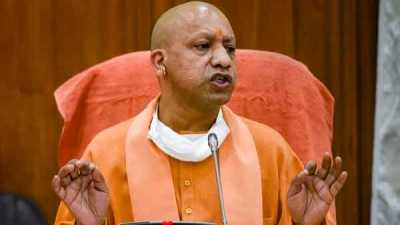World Population Day 2021: UP to announce new population policy, here’s everything you need to know

Lucknow: The Uttar Pradesh government will announce a new population policy for the years 2021-2030 on Sunday in order to encourage people to help with population control.
On the occasion of World Population Day —- July 11 —- Chief Minister Yogi Adityanath will release the New Population Policy 2021-30, according to an official statement.
Adityanath wrote on Twitter, “Increasing population is the root of major problems in society, including inequality.” Population control is the most important prerequisite for the establishment of a progressive society.
People with more than two children in Uttar Pradesh will be barred from running for local body elections, applying for government jobs, or receiving any type of subsidy, according to a draught population control bill posted on the state law commission’s website.
The draught bill, for which public comments are being accepted until July 19, also prohibits such people from being promoted in government jobs, while offering incentives to those who limit their children to two.
According to the draught, it is necessary to control and stabilise the state’s population in order to promote sustainable development with more equitable distribution.
The draught bill drew criticism from opposition parties on Saturday, with the Congress accusing it of being designed to serve the BJP”s “political agenda” ahead of the UP assembly elections next year.
The public has been invited to make suggestions to improve the draught bill, and the deadline is July 19.
According to the UP State Law Commission (UPSLC) website, if enacted, the provisions of the proposed legislation titled The Uttar Pradesh Population (Control, Stabilization, and Welfare) Bill, 2021 will take effect one year from the date of publication in the Gazette.
The provisions of this legislation shall apply to a married couple in which the boy is at least 21 years old and the girl is at least 18 years old.
“Public servants who adopt the two-child norm will receive two additional increments during the entire service, maternity or, as the case may be, paternity leave of 12 months, with full salary and allowances, and a three percent increase in the employer”s contribution fund under the National Pension Scheme,” the draught bill states.
According to the draught bill, maternity centres will be established at all primary health care centres.
According to the statement, the centres and non-governmental organisations will distribute contraceptive pills and condoms, raise awareness about family planning methods through community health workers, and ensure mandatory registration of pregnancies, deliveries, births, and deaths throughout the state.
The draught bill also states that it is the government’s responsibility to implement a compulsory population control subject in all secondary schools.
“There are few ecological and economic resources in Uttar Pradesh. It is critical and urgent that all citizens have access to basic human necessities such as affordable food, safe drinking water, decent housing, access to quality education, economic/livelihood opportunities, power/electricity for domestic consumption, and a secure living environment “The draught bill reads as follows:
It is necessary to ensure healthy birth spacing through measures aimed at increasing the availability, accessibility, and affordability of quality reproductive health services in order to achieve the state’s goal of population control, stabilisation, and welfare, according to the report.
Concerning the proposed population policy, the state government stated that efforts will be made to increase the accessibility of contraceptive measures distributed through the Family Planning Programme as well as to provide a proper system for safe abortion.
Efforts will be made to stabilise the population through improved health facilities by providing accessible solutions to impotence/infertility and lowering newborn and maternal mortality rates, according to a statement.
One of the key points of the new policy is to make comprehensive arrangements for the care of the elderly, in addition to better management of adolescents aged 11 to 19 years.






